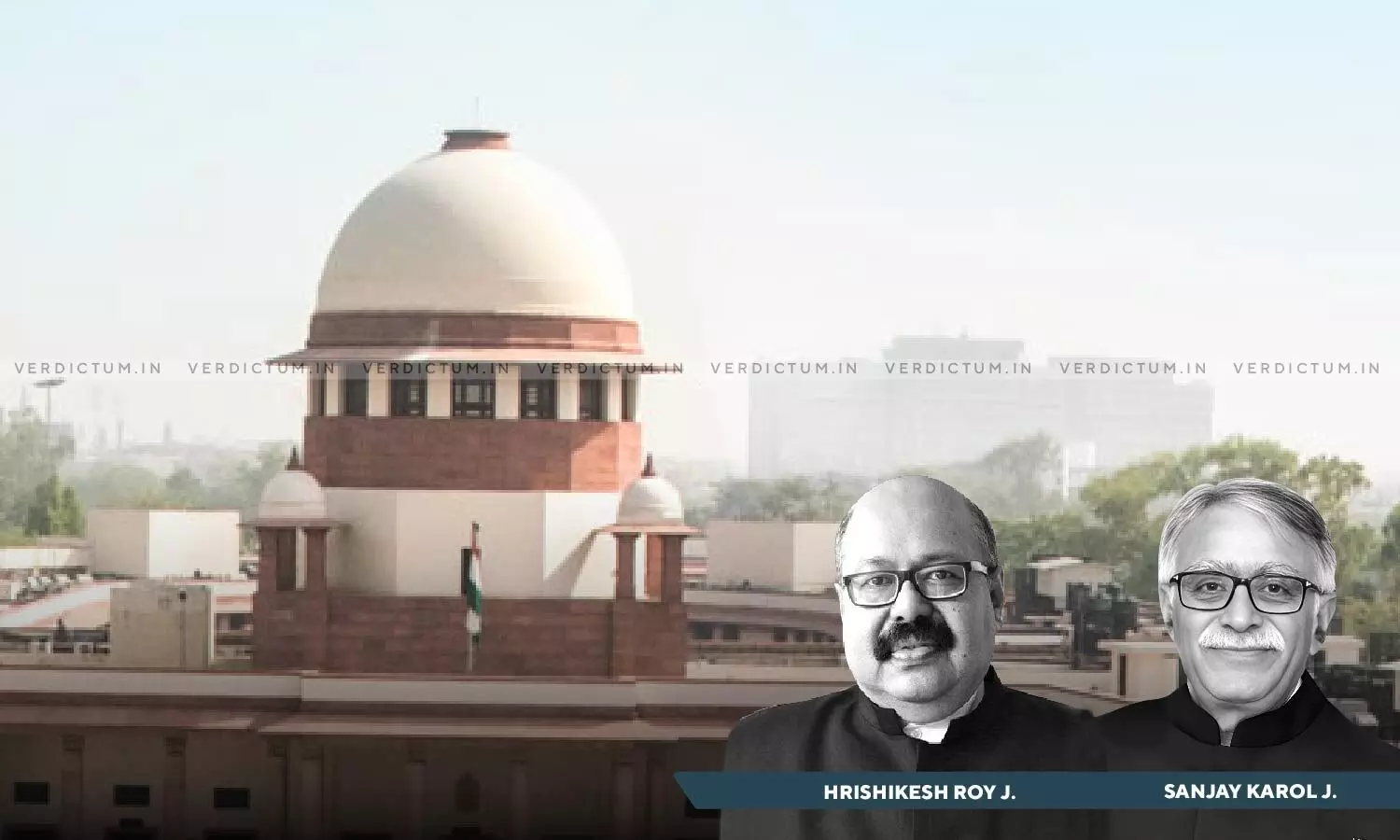
Acquittal From Criminal Proceedings Does Not Automatically Discharge Employee From Departmental Proceedings As Both Are Separate And Distinct: SC Reiterates
 |
|The Supreme Court held that acquittal in criminal proceedings does not automatically discharge a delinquent employee as these are separate and distinct.
The Court set aside the restoration order of a Bank Employee who was discharged from his services after three FIRs were filed against him, and the Departmental proceedings established the allegations.
The Bench comprising Justice Hrishikesh Roy and Justice Sanjay Karol observed, “The nature of proceedings being wholly separate and distinct, acquittal in criminal proceedings does not entitle the delinquent employee for any benefit in the latter or automatic discharge in departmental proceedings”.
Senior Advocate Vikas Singh appeared for the Appellant, and Advocate Jitender Bharti appeared for the Respondent.
An Assistant (CAT) previously employed at the State Bank of India (Appellant) had disciplinary proceedings initiated against them after three Government retailers complained that their challan deposits were not being deposited in the branch. The District Civil Supply Officer (DCSO) also complained about a retailer who used a fake challan to receive a specific food delivery. The Respondent was arrested and released on bail after three FIRs were lodged. Ultimately, the disciplinary authority dismissed the Respondent from service. He filed an appeal, which was denied, but then filed another appeal before the Single Judge of the High Court, which was allowed. The Bank filed an appeal before the Division Bench, but the order of the Single Judge was upheld, and disciplinary proceedings were set aside. Aggrieved by the order, the Bank approached the Supreme Court by way of a Civil Appeal, challenging the order and judgment of the Division Bench.
The Court noted the issues to ascertain were, “Does clause 4 of the Memorandum of Settlement dated 10th April 2002 create a bar on departmental proceedings continuing when the person subjected thereto is being tried before a criminal court for offences of the same origin” and “Does acquittal in some of the connected proceedings entail a benefit in the surviving proceedings? Further, inuring a right upon the delinquent employee of automatic discharge in disciplinary proceedings”.
The Court referred to the case of M Paul Anthony v Bharat Gold Mines Ltd [(1999) 3 SCC 679]. In cases where both departmental and criminal proceedings are ongoing, the Bench noted that both can continue separately. However, suppose the charges against the employee are severe, and the proceedings are based on similar facts. In that case, the departmental proceedings should be postponed until the criminal case concludes. The Court observed that the decision to stay the departmental proceedings should be based on the specific circumstances of each case, including the nature of the charge and the evidence collected. However, the Bench observed that such should not be used unjustly to delay the departmental proceedings. The Bench asserted that if the criminal case is delayed, the departmental proceedings can be resumed to conclude the matter as soon as possible. This could result in the employee being cleared or being dismissed from their position.
The Court reiterated that a departmental proceeding pending a criminal trial does not automatically result in a stay unless a complex legal question is involved. Additionally, an acquittal in a criminal case does not necessarily mean that proceedings in favor of a delinquent employee have ended.
The Bench noted, “As a principle of law, we have already observed that a departmental proceeding pending criminal trial would not warrant an automatic stay unless, of course, a complicated question of law is involved. Also, acquittal in a criminal case ipso facto would not be tantamount to closure or culmination of proceedings in favour of a delinquent employee”.
Furthermore, the Court observed that there was no evidence that the trial began within a year of the offense, nor was there any specific date mentioned in the inquiry report objecting to the disciplinary proceedings during a criminal case.
Therefore, the Court held that the High Court erred in its decision and that disciplinary proceedings are not mandatory, especially if initiated after one year period. The Court placed reliance on the case of United Commercial Bank & Ors. v P.C. Kakkar [(2003) 4 SCC 364] and outlined that an acquittal in a criminal case does not determine misconduct and that authorities may still proceed with disciplinary proceedings.
“Both these aspects, taken along with the fact that it is not mandatory to stay the disciplinary proceedings, particularly when they have been initiated after the prescribed period of one year, we cannot bring ourselves to agree with the courts below. The restriction within clause 4 is not complete and is to be applied on facts”, the Bench observed.
Accordingly, the Court disposed of the Appeal and set aside the impugned judgment and order.
Cause Title: State Bank of India & Ors. v P. Zadenga (2023 INSC 868)